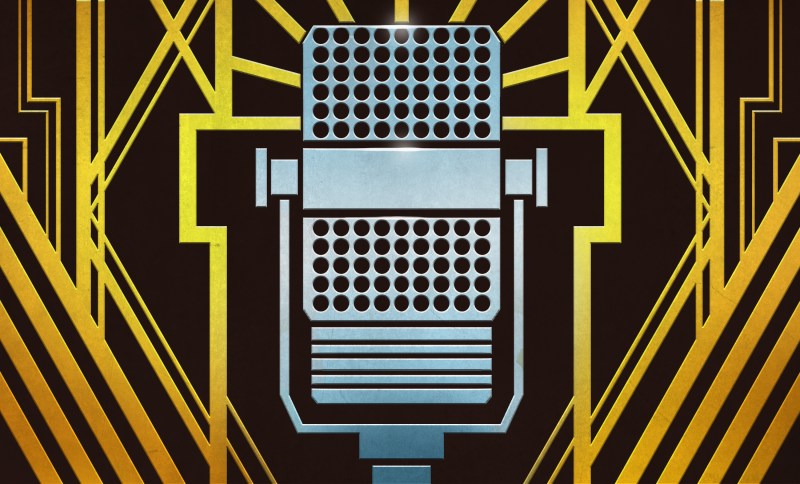Hackaday editors Mike Szczys and Elliot Williams fan through a fantastic week of hacking. Most laser cutters try to go bigger, but there’s a minuscule one that shows off a raft of exotic components you’ll want in your bag of tricks. Speaking of tricks, this CNC scroll saw has kinematics the likes of which we’ve never seen before — worth a look just for the dance of polar v. Cartesian elements. We’ve been abusing printf() for decades, but it’s possible to run arbitrary operations just by calling this Turing-complete function. We wrap the week up with odes to low-cost laptops and precision measuring.
Take a look at the links below if you want to follow along, and as always, tell us what you think about this episode in the comments!
Direct download (60 MB or so.)
Episode 071 Show Notes:
New This Week:
- Lattice Semiconductor Targets Bitstream Reverse Engineering In Latest Propel SDK License
- Lattice Drops EULA Clause Forbidding FPGA Bitstream Reverse Engineering
Interesting Hacks of the Week:
- Tiny Laser Cutter Puts Micro Steppers To Work
- Linear motor: Step Motor Linear Screw Rod Slider
- SMT metal WiFi antenna: PRO-OB-440
- Right-angle surfact mount fasteners: SMTRA440-9-6ET
- Trogdor the Burninator!
- CNC Scroll Saw Makes Promising First Cuts
- Run Your Favorite 8-bit Games On An ESP32
- An Open Hardware Modem For The Modern Era
- Tic-Tac-Toe Implemented In Single Call To Printf()
- Finding Perfect Part Fits With The Goldilocks Approach (and OpenSCAD)
Quick Hacks:
- Mike’s Picks:
- Elliot’s Picks:
















It has always been kind of fascinating when someone succesfully makes analog video out of a basic MCU, only from a couple of the same two-state GPIO that usually blinks a led. Now since ESP32 has advertized hardware features that specifically allows to generate such arbitrary high speed signal, not sure the term “bitbanging” would apply anymore. But this doesn’t at all prevent Hackaday hosts to repeatedly call it a “monumental” hack, so eager they seem to add it as another chapter to their “official” history of the famous hackers (conveniently labelled “Hackaday people” of course) who successively paved this glorious way….
Indeed it is very good that the mentionned slick projects are publicly shared and show what is possible, but I find it is rather dishonnest to present as some incredible feat such relatively trivial things done by means of this powerful microcontroller (like emulators of vintage systems which merely had a few dozen of KB of ram, and initally developped for an old 75MHz Pentium PC, are “monumentally” running on a modern dual-core 240MHz chip with half a megabyte of ram !).
And most of all, please stop implying systematically that the world consists only of what is reported on your blog or the Internet. It is obvious that a lot of people would think of doing just that, and I personally know 2 different tinkerers who did this simple composite video thing a couple of years ago with an ESP32, about the same way but on their own, from scratch, without following the steps of one of your fabricated “heroes”. Both are instead reserved and modest people who would never have the presomptuousness to present such thing as a breakthrough, like the podcast is doing really contemptuously.
That said, I respect and share the enthusiasm for the inspiring things reported here, but one should always have in mind the submerged part of the iceberg, and that similar cool or great thing are also done somewhere among a vast majority of people who don’t have the time to publish their work or the will to promote themselves online, which is another talent.
ABSOLUTELY 100 % correct in your reply above… Similar to everyone that comes home from military service is called a ‘Hero’….. We have a tendency to declare everything to be a huge technological advancement, like Tetris on an ESP8266 and LCD display. If you always cry wolf, then when a real wolf shows up, there is no response…….
Great podcast, but I think you missed the org which was most mortified by the appearance of netbooks. Laptop manufacturers didn’t see Netbooks as a threat, because whatever they lost in the (then) low-end laptops was compensated by the new TAM which Netbooks opened up for them. The org which was most terrified by Netbooks was Microsoft.
In 2007-2008, Microsoft was getting $100-150 per device sold (according to reports at the time), and suddenly there was a successful form factor which didn’t pay the Microsoft tax. Indeed, if you go back and read the reviews one of the enablers of this market was the fact that the manufacturers weren’t paying that.
But it was actually far worse than that from Microsoft’s PoV, because they had just released Windows Vista in Jan 2007, and the initial reactions were rightly scathing. In releasing Vista, they’d significantly upgraded the minimum system requirements (making lots of low-end laptops obsolete in the process), and in Netbooks people discovered that you could actually create a productive working environment under Linux. They’d knowingly obsoleted millions of devices, thinking that the upgrade of them would see further sales, and instead there was a competitor changing the market.
This is why cut down versions of Vista, which had previously been called impossible, suddenly existed. It’s also why the Microsoft tax had some tiers for Netbook (reportedly $60, although I can find no confirmation online).
Ironically, Microsoft completely missed the modern smartphone market in the very same year, and then the tablet market in 2010. It’s a perfect example of a lazy, bloated monopoly with shockingly bad leadership missing some major industry changes. The Microsoft of the 2000’s was still benefiting from its gross anti-competitive tactics of the 90s. I will say, in fairness, the contemporary Microsoft has moved beyond that (mostly), but it took many years and the process would have sunk most other companies.